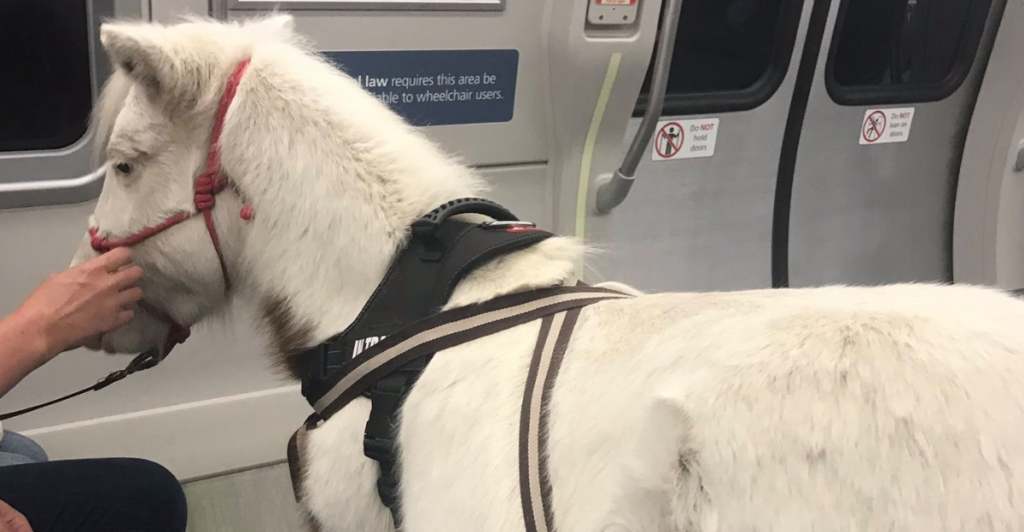
The role of service animals is evolving, and miniature horses are emerging as an important alternative to dogs in public spaces. While dogs have traditionally been the go-to service animals for individuals with disabilities, miniature horses offer unique advantages, from longevity to strength. As awareness grows about their capabilities, more people are considering miniature horses as a viable and beneficial choice for assistance. This article will explore the rise of miniature horses as service animals and their growing acceptance in public spaces.
The Concept of Service Animals
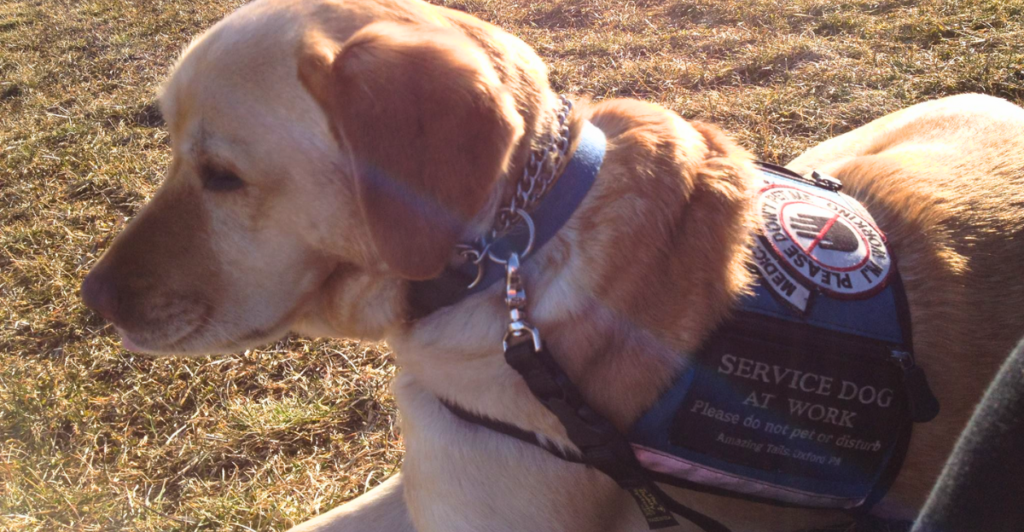
Service animals have long been recognized as essential aids for individuals with disabilities, providing support in daily activities that would otherwise be challenging. Traditionally, dogs have been the animal of choice, but a significant shift occurred with the Americans with Disabilities Act (ADA) amendments in 2010. These amendments acknowledged miniature horses as a legitimate category of service animal, recognizing their abilities to perform tasks such as guiding, supporting mobility, and providing emotional comfort.
Miniature Horses: An Overview
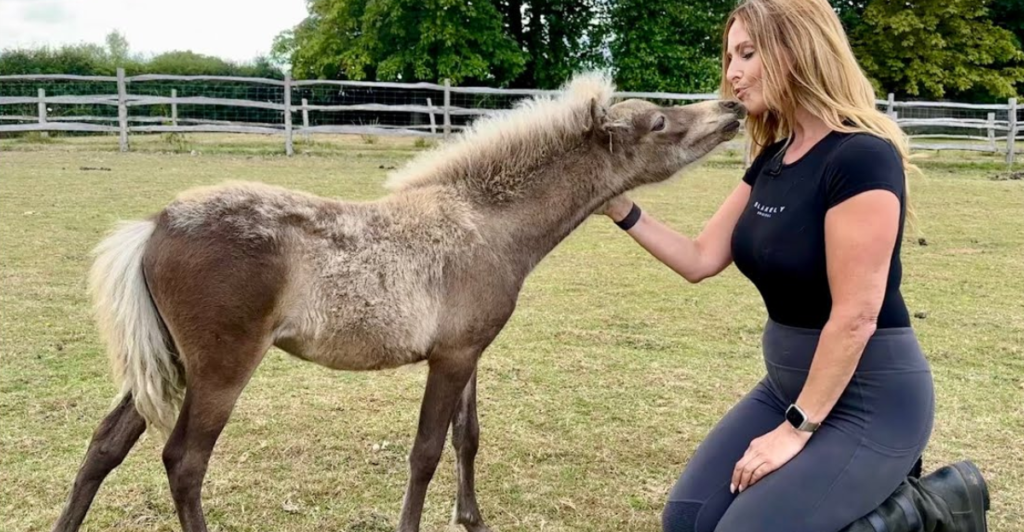
Miniature horses are small but robust animals, typically standing between 24 and 34 inches at the shoulder. Despite their size, they are known for their strength, intelligence, and calm demeanor, making them highly suited for service roles. Miniature horses possess remarkable memory and sight, which is particularly useful for tasks such as guiding individuals with visual impairments. Their unique traits, such as their natural affinity for working alongside people, have positioned them as excellent candidates for service animal work in public spaces.
Why Miniature Horses? Unique Benefits

Miniature horses offer distinct advantages over traditional service dogs. One major benefit is their longevity—miniature horses often live for 30-35 years, significantly longer than most dogs. This extended lifespan means that a miniature horse can provide service over a long period, which is particularly helpful for individuals who rely on their service animal for long-term support. Additionally, miniature horses are known for their stable temperaments and impressive physical strength, which makes them reliable partners for a variety of tasks such as pulling wheelchairs or supporting walking.
Miniature Horses as Service Animals

Miniature horses are not only trained to assist with mobility, but they are also invaluable for individuals with visual impairments, those needing emotional support, and those suffering from PTSD. Their calming presence helps reduce anxiety, and they are especially adept at assisting with walking and stability. These horses can also be trained to assist in navigating public spaces, help people with limited movement, and even perform tasks that require strength and dexterity, such as retrieving dropped items or operating doors.
Training and Certification Requirements
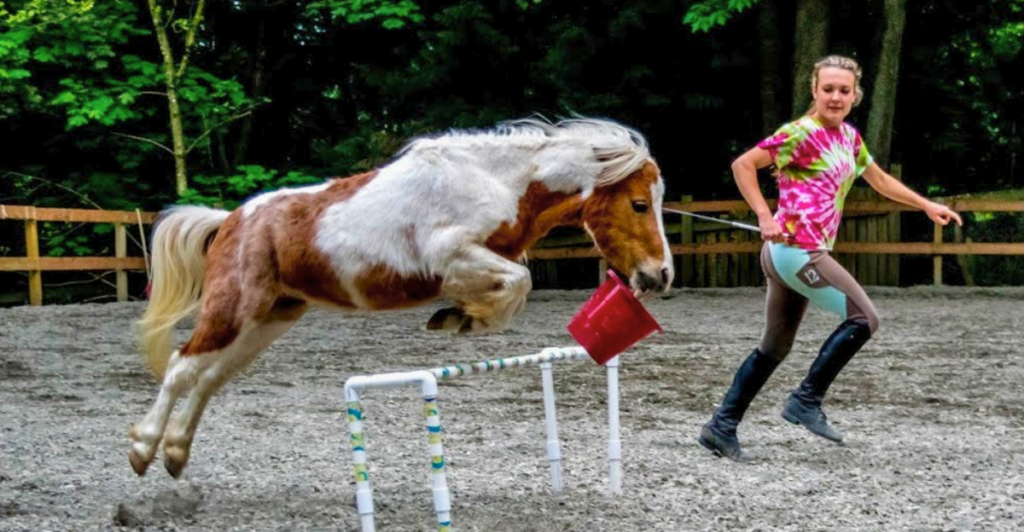
Training a miniature horse to be a service animal requires time, patience, and dedication. Like service dogs, they must undergo specialized training, which includes mastering basic commands, socializing with various environments, and learning to remain calm in busy public spaces. These horses are trained to navigate obstacles, assist with tasks such as opening doors, and provide support when needed. Certification under the Americans with Disabilities Act ensures that the horse meets the necessary standards for behavior and reliability in public settings.
Legal Recognition Under the ADA

Miniature horses were formally recognized under the Americans with Disabilities Act (ADA) in 2010, opening doors for their use as service animals. The ADA outlines specific conditions for their use in public spaces, including the need for them to be well-behaved and able to perform specific tasks that benefit individuals with disabilities. The legal framework ensures that people with disabilities who rely on miniature horses as service animals have the same access and protections as those using dogs, even in places where pets are typically prohibited.
Navigating Public Spaces: Practical Challenges

Despite their benefits, miniature horses present practical challenges when used in public spaces. Their size and strength require extra consideration, particularly in crowded or confined environments. Issues like cleanliness, the horse’s comfort, and navigating spaces like airplanes or restaurants can complicate matters. However, businesses and public spaces are becoming increasingly open to the idea, adjusting their policies to accommodate miniature horses. This shift has sparked a broader conversation about accessibility and how we can make spaces more inclusive for all forms of service animals.
Public Perception and Acceptance

The rise of miniature horses as service animals has generated curiosity and some skepticism in the general public. Many people are unfamiliar with the concept of horses performing service roles, and misconceptions abound. To address these challenges, advocates for miniature horses emphasize the benefits of their calm demeanor, loyalty, and their capacity to support people in a variety of meaningful ways. Through public education and awareness campaigns, attitudes toward miniature horses are shifting, and acceptance is gradually increasing.
Miniature Horses vs. Dogs

The debate between miniature horses and dogs as service animals often hinges on the unique needs of the individual. While dogs are more portable and often better suited for smaller spaces, miniature horses offer unmatched strength, stability, and a longer lifespan. Some individuals prefer miniature horses because they are less likely to suffer from the same health issues that may shorten a dog’s service life. However, dogs generally excel in environments where space is tight, such as restaurants or crowded urban areas.
The Emotional Bond with Miniature Horses
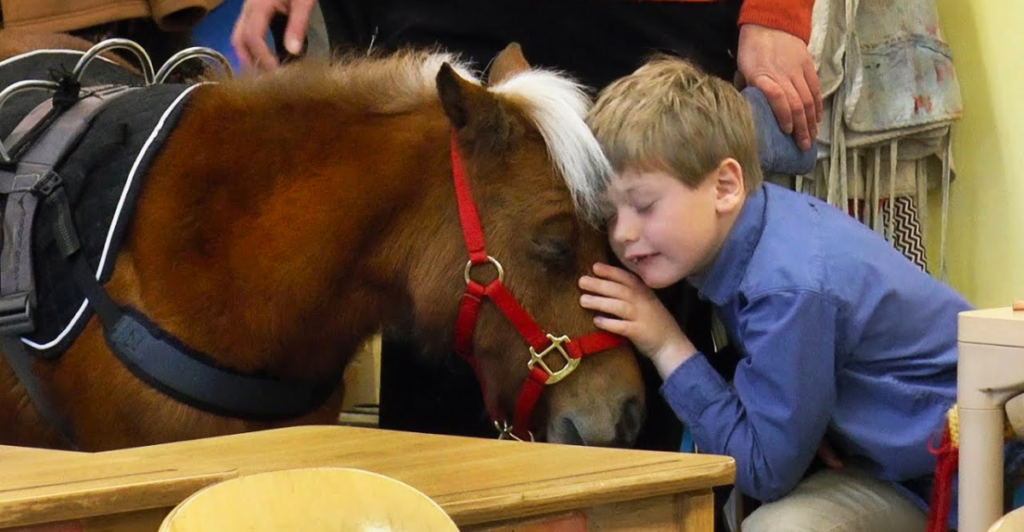
One of the most rewarding aspects of having a miniature horse as a service animal is the deep emotional bond that forms between the handler and the animal. Like service dogs, miniature horses provide not only physical assistance but also emotional support. Their calm, non-threatening nature allows individuals to build a trusting relationship, which is essential for emotional well-being. Many handlers report that their bond with their miniature horse is central to their daily lives, helping them navigate both physical and emotional challenges.
Businesses and Accessibility Considerations
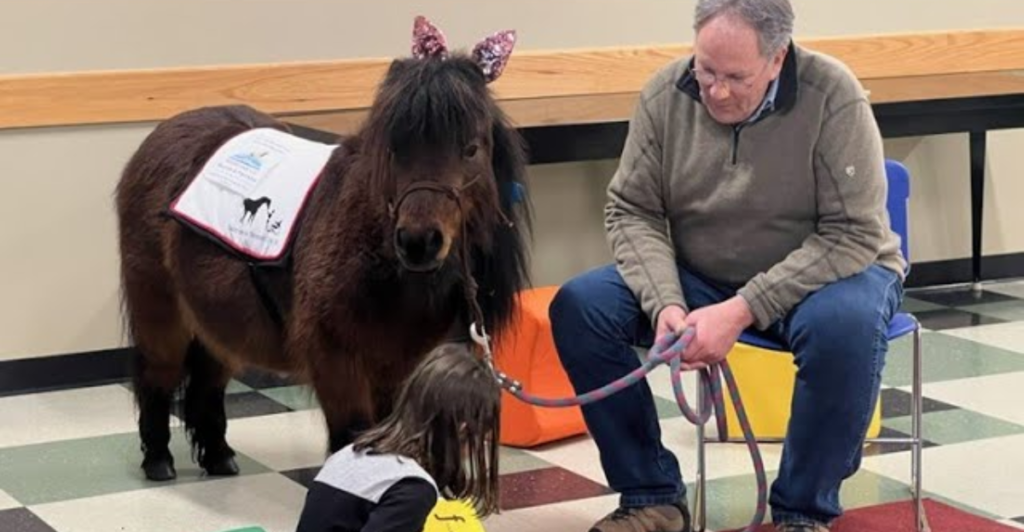
As miniature horses become more prevalent in public spaces, businesses are increasingly faced with the responsibility of accommodating them. This may require making adjustments such as widening doorways, providing designated areas for the animals, and educating staff on how to interact with them. These considerations are crucial to ensure that individuals with disabilities who rely on miniature horses can access services and spaces just like those who use service dogs. By fostering a culture of inclusivity, businesses play an important role in the growing acceptance of miniature horses.
Future Implications for Accessibility
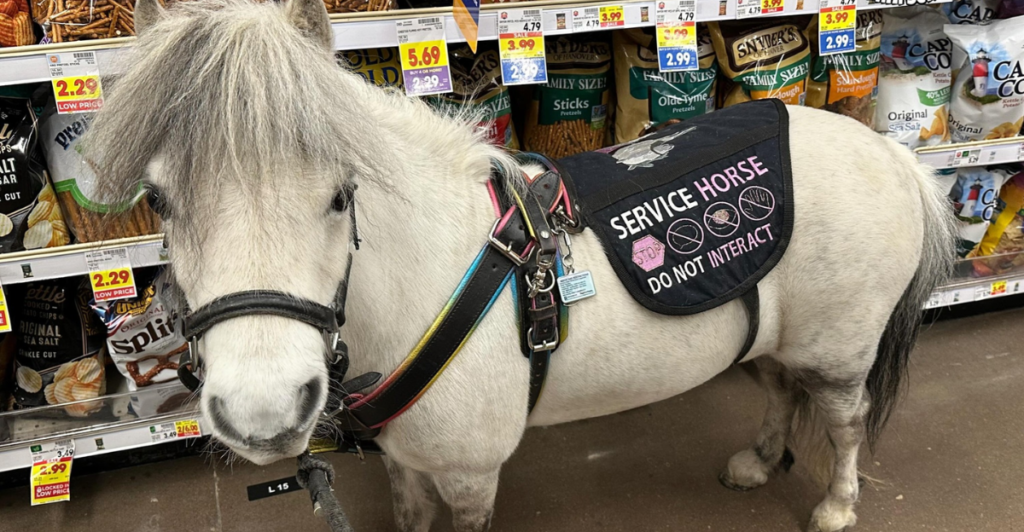
The rise of miniature horses as service animals represents a broader shift toward a more inclusive society. Their growing use highlights the importance of providing accessibility for all individuals, regardless of the form their support animals take. This trend is not only about animal rights but also about enhancing the quality of life for people with disabilities, ensuring they have the support they need to participate fully in society. As awareness grows, it’s likely that more public spaces will adapt to include miniature horses, promoting accessibility on a wider scale.
A New Frontier in Service Animal Advocacy

Miniature horses represent a new frontier in service animal advocacy, expanding the possibilities for assistance animals and the people they serve. Their unique characteristics, including their longevity, strength, and calm demeanor, make them ideal companions for many individuals with disabilities. As society continues to recognize the value of these remarkable animals, the future of service animals may very well include more miniature horses alongside traditional service dogs, breaking down barriers and increasing access for everyone in need.
Sources:
Miniature Horses as Service Animals
Miniature Horses as Service Animals | What Can They Do?
Why Miniature Horses Make Such Great Service Animals
A Brief History of Miniature Horses and the ADA
Stay connected with us for more stories like this! Follow us to get the latest updates or hit the Follow button at the top of this article, and let us know what you think by leaving your feedback below. We’d love to hear from you!







